Qualifying for Medicaid Attorneys in Colorado
In order to qualify for Medicaid, a single person can only have $2,000 worth of assets in their name - the so-called "countable assets." When adding up the assets, certain assets do not count against the $2,000 amount. For instance, a home does not count as long as it has a market value of less than $500,000. As a general rule, most personal items do not count. One vehicle does not count towards the total. Pre-need burial arrangements can also become exempt if such arrangements are made "irrevocable."
What about giving money away? The short answer is that Medicaid does not want someone in need of long-term care to give away their assets, go into a long-term care facility, and then immediately apply for Medicaid benefits. If someone were to do this, Medicaid would impose a waiting period before the person would be eligible to receive benefits. The length of this waiting period is based on the amount given away. "Gifts" also include buying assets for less than fair value, so no buying grandma's house for half price. However, there are still planning opportunities available that allow some gifting of assets. These rules get complicated and if not done correctly will result in a waiting period.
Understanding Medicaid's Income Rules
In addition to the asset rules, Medicaid also has income rules. For 2015, a nursing home resident can earn no more than $2,199 per month. Of course, the monthly cost of a nursing is much more than that. The average Medicaid cost of nursing home care in Colorado is $7,249. This places most middle-class folks in a "gap" between the maximum income and the average cost of a nursing home. Fortunately, there is a way to close this gap through the use of an income trust.
Resource Allowance and Exempt Resources
For 2016, the community spouse can have a maximum of $119,220.00 in “countable assets.” As the term “countable assets” implies, certain assets are not countable or “exempt.” The most important of these assets would be the home used as the primary residence for the community spouse provided that the value of the home does not exceed $552,000.00. There is no limit on the dollar value of a car titled to the community spouse and no limit on the value of the community spouse’s personal property and household effects.
The institutionalized spouse can have a maximum of $2,000.00 in countable assets in his her or name. Medicaid does require for the assets to actually be divided so that $119,220.00 is only in the name of the community spouse and $2,000.00 is in the name of the institutionalized spouse. However, as a practical matter, re-titling of the assets does not need to be completed before the application is approved.
Income
Even with Medicaid, the institutionalized spouse must contribute nearly all of his income towards the costs of the long-term care facility, and Medicaid then makes up the difference. This means that the community spouse will lose that source of income. However, the community spouse is allowed a Minimum Monthly Maintenance Needs Allowance or “MMMNA” of $1,992.00 per month. (This is the basic level. In exceptional cases this amount can be increased up to a maximum of $2,981.00 per month.) This means that if the community spouse’s income is less than $1,992.00 per month, she will be allowed to receive a portion of the institutionalized spouse’s income that will bring his or her monthly income to the $1,992.00 level. If the community spouse’s income exceeds the MMMNA, there is no “penalty,” and her income will be hers to keep. The community spouse will not be required to use any of her income to help pay for the institutionalized spouse’s cost of care.
Planning Opportunities
The Medicaid rules allow and actually favor ensuring that the community spouse has sufficient resources and income not to become impoverished herself. If countable assets exceed $119,220.00, the community spouse has several options to spend this money down to the required level. These options include improving an existing home that is badly in need of repairs, purchasing new home, and purchasing a new car. The community spouse can also purchase an annuity that complies with Medicaid regulations to provide her with additional income. However, these rules can become a bit involved, especially when it comes to annuities and retirement accounts. Failure to comply with the rules could result in a denial of benefits.
Opportunities for Community Spouses
For couples where one spouse requires long-term care while the other remains at home, there are more planning opportunities. In addition to a home worth less than $500,000, the spouse that remains at home - or the "community spouse" - can keep $119,200 in assets. The same exempt assets apply to couples as for single applicants. In addition, there really is no limit on the amount of income that the community spouse can earn. This provides opportunities to convert countable assets into exempt assets or, through the correct use of specific Medicaid-compliant annuities, to assets that increase the income for the community spouse. In short, the community spouse does not need to become impoverished in order to provide for the long-term care for the other spouse.
The “Look Back” Period and the Penalty Period
Medicaid obviously does not want a person to give away all of their money and possessions and then qualify for government benefits. Therefore, although some gifting of assets is allowed, they come with a catch. The first catch to beware of is the “look back” period. This rule allows Medicaid to go back five years from the date of the application and see if any gifts were made. For example, if a Medicaid application is files May 1, 2016, any gifts made between May 1, 2011, to May 1, 2016, are fair game for Medicaid to impose a “penalty period.” It is important to remember that the look back period and the penalty period are not the same. Even if a gift was made during the look back period, that does not mean that the person must wait the full five years before qualifying for Medicaid.
So what is the penalty period? The idea behind the penalty period is that had the Medicaid applicant not made the gift, that money would have been available for the person’s medical costs which would have saved the government money. As a penalty for making the gift, Medicaid will make the person wait a certain amount of time before being eligible for benefits. The time is calculated by dividing the value of the gift by the average cost of long-term care. This is the penalty factor and it changes each year. The result is the number of months and days that the Medicaid applicant must wait before being allowed to receive benefits. Here is where things get tricky: the penalty period starts to run only when the applicant is at or below the $2,000.00 asset limit (for a couple, the asset limit is $119,220.00 or less). The problem, of course, is how will the person pay for their medical care if the assets are all spent? Even for a couple, it is not a good idea to spend any more of the $119,220.00 resource allowance than is necessary. This problem is solved by placing money into a Medicaid compliant annuity that will pay an amount each month that will cover the cost of care during the penalty period.
For Planning Assistance, Contact Jorgensen, Brownell & Pepin, P.C.
Planning now can protect your assets in the future and insure your care. Our elder law attorneys will explain options for protecting a loved one's assets, qualifications for medical care programs and ways to fund nursing home care. When necessary, we consult tax experts, accountants and healthcare planners in order to create a comprehensive plan designed to meet the unique needs of your loved one.
Long-Term Elderly Care Planning Specialties
Get more information about our long-term elderly care planning representation
We’ve Helped Others Like You
Our Colorado Attorneys











Get The Help You Need
Get JBP Legal’s experience on your side. Contact us for questions or a consultation.





